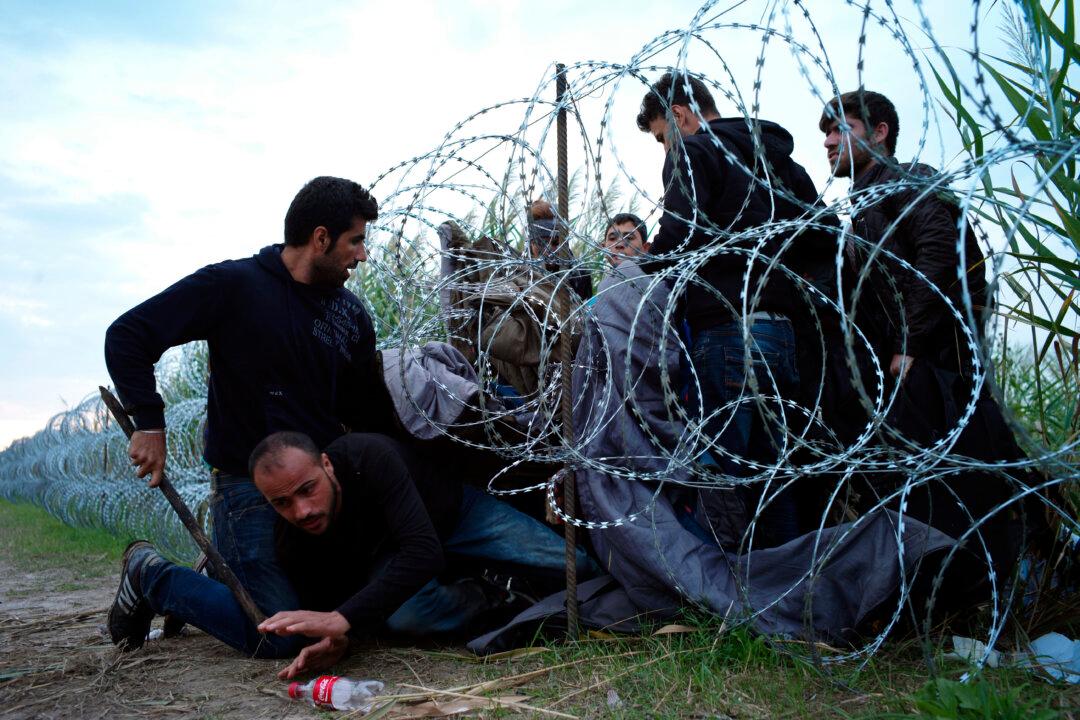HAJDUKOVO, Serbia— A Pakistani identity card in the bushes, a Bangladeshi one in a cornfield. A torn Iraqi driver’s license bearing the photo of a man with a Saddam-style mustache, another one with a scarfed woman displaying a shy smile.
Documents scattered only meters from Serbia’s border with Hungary provide evidence that many of the migrants flooding Europe to escape war or poverty are scrapping their true nationalities and likely assuming new ones, just as they enter the European Union.
Many of those travelers believe that using a fake document — or having none at all — gives them a better of chance of receiving asylum in Germany and other western European states. That’s because the surest route to asylum is to be a refugee from war and not an economic migrant fleeing poverty. That fact has led to a huge influx of people claiming to be Syrian.
Serbian border police say that 90 percent of those arriving from Macedonia, some 3,000 a day, claim they are Syrian, although they have no documents to prove it. The so-called Balkan corridor for the migrant flight starts in Turkey, then goes through Macedonia and Serbia before entering the European Union in Hungary.
“You can see that something is fishy when most of those who cross into Serbia enter January first as the date of their birth,” said border police officer Miroslav Jovic. “Guess that’s the first date that comes to their mind.”
The chief of the European Union border agency Frontex said that trafficking in fake Syrian passports has increased.
“A lot of people enter Turkey with fake Syrian papers, because they know that they'll get asylum in the EU more easily,” Fabrice Leggeri said.






